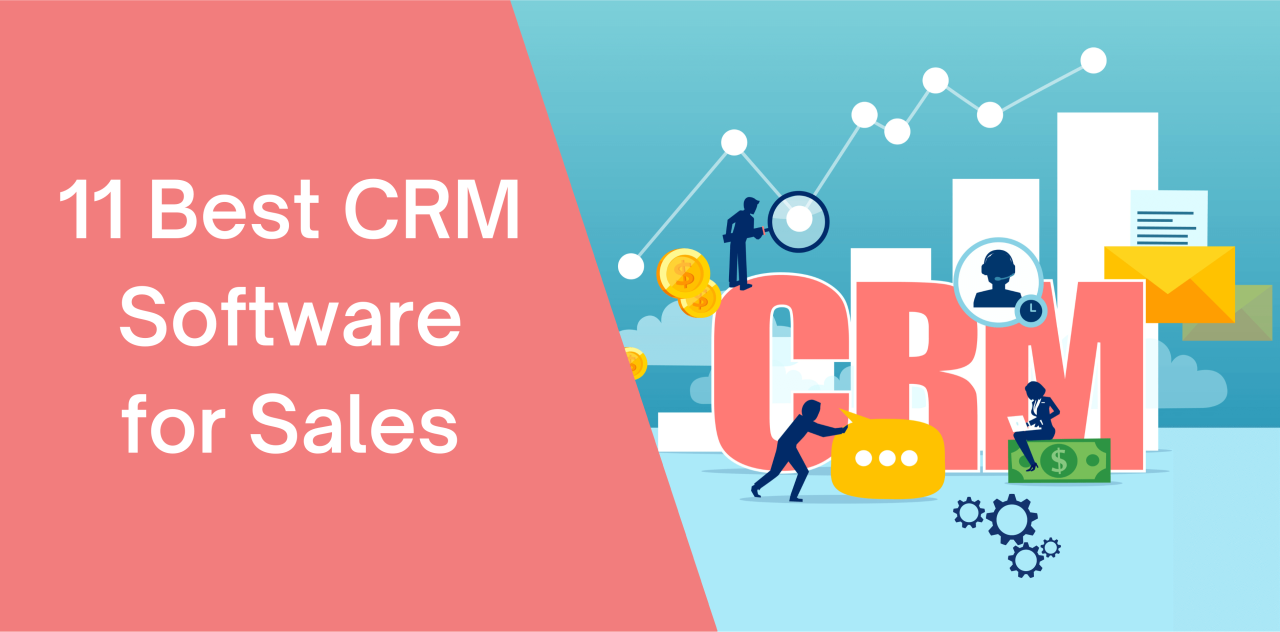Sales CRM, a powerful tool that revolutionizes the way businesses manage customer interactions, is at the heart of modern sales success. It acts as a centralized hub, organizing customer data, streamlining sales processes, and empowering sales teams to make informed decisions.
Table of Contents
From tracking leads and opportunities to automating follow-ups and analyzing sales performance, a robust CRM system provides a comprehensive view of the sales funnel, enabling businesses to optimize their strategies and drive revenue growth.
Benefits of Using a Sales CRM

In today’s competitive business landscape, optimizing sales processes is paramount to success. A Sales CRM (Customer Relationship Management) system can be a game-changer, streamlining operations, boosting productivity, and ultimately driving revenue growth.
Increased Sales Efficiency
A Sales CRM centralizes all customer information in one platform, providing a comprehensive view of interactions, purchase history, and communication preferences. This eliminates the need for manual data entry and reduces the time spent searching for information. By automating repetitive tasks like lead qualification and follow-up, sales representatives can focus on building relationships and closing deals.
Enhanced Productivity, Sales crm
Sales CRMs automate tasks, allowing sales teams to work smarter, not harder. Features like automated email campaigns, lead scoring, and activity reminders free up time for more strategic activities. This increased efficiency translates to higher productivity and improved sales performance.
Improved Customer Relationships
By providing a unified view of customer interactions, Sales CRMs empower sales teams to personalize communication and provide tailored solutions. This leads to a more positive customer experience, fostering stronger relationships and driving customer loyalty.
Data-Driven Insights
Sales CRMs collect valuable data on customer behavior, sales trends, and marketing effectiveness. This data can be analyzed to identify areas for improvement, optimize sales strategies, and make informed decisions.
Streamlined Sales Process
Sales CRMs provide a structured framework for managing the sales process, from lead generation to closing deals. This ensures consistency and efficiency, reducing the risk of dropped leads and missed opportunities.
Improved Forecasting and Reporting
Sales CRMs offer powerful reporting and analytics tools that provide insights into sales performance, pipeline health, and customer engagement. This data enables businesses to make accurate forecasts, identify bottlenecks, and optimize sales strategies.
“A Sales CRM can be a game-changer for businesses looking to streamline their sales processes, boost productivity, and improve customer relationships.”
Sales CRM and Data Analytics

Sales CRMs are powerful tools that go beyond just organizing customer information. They collect and analyze data to provide valuable insights that can significantly improve sales performance and decision-making.
Data Collection and Analysis
Sales CRMs collect data from various sources, including customer interactions, marketing campaigns, website activity, and sales transactions. This data is then analyzed to identify patterns, trends, and areas for improvement. For example, a CRM might analyze customer demographics, purchase history, and website behavior to segment customers into different groups. This segmentation allows businesses to tailor their marketing messages and sales strategies to each group, leading to higher conversion rates and customer satisfaction.
Data Analytics for Sales Performance
Data analytics plays a crucial role in improving sales performance by providing actionable insights. By analyzing sales data, businesses can identify top-performing sales reps, understand customer preferences, and pinpoint areas where sales processes can be optimized. For instance, analyzing call recordings can reveal effective sales techniques, while tracking email open rates and click-through rates can optimize email marketing campaigns.
Data Visualization and Reporting
Data visualization and reporting are essential for making data insights easily understandable and actionable. Sales CRMs offer various reporting and dashboard functionalities that allow businesses to visualize data in interactive charts, graphs, and tables. These visualizations provide a clear picture of sales performance, customer behavior, and marketing campaign effectiveness.
For example, a sales manager can use a dashboard to track key performance indicators (KPIs) such as sales revenue, conversion rates, and customer acquisition cost. This allows them to quickly identify areas where improvements are needed and take action to address them.
Last Word
By implementing a well-chosen and effectively utilized Sales CRM, businesses can transform their sales operations, fostering stronger customer relationships, increasing efficiency, and ultimately achieving remarkable results. The future of sales lies in leveraging data-driven insights and automating processes, and Sales CRM is the key to unlocking this potential.
Sales CRM is all about managing your customer interactions and sales pipelines effectively. To visualize and organize your sales strategies, a mind map maker can be a valuable tool. It allows you to brainstorm, connect ideas, and create a clear roadmap for your sales processes, ensuring you’re always on top of your game.
